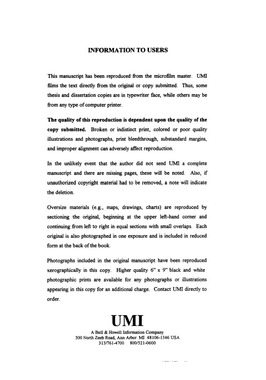| dc.contributor.advisor | Ayres, Frances, | en_US |
| dc.contributor.author | Still, Kelley Ann. | en_US |
| dc.date.accessioned | 2013-08-16T12:29:46Z | |
| dc.date.available | 2013-08-16T12:29:46Z | |
| dc.date.issued | 1997 | en_US |
| dc.identifier.uri | https://hdl.handle.net/11244/5497 | |
| dc.description.abstract | Current segment reporting requirements allow management a large degree of latitude in determining the segments reported. This flexibility may allow firms to underreport the results of operations. | en_US |
| dc.description.abstract | In brief, results show that reliance on the external capital market is positively associated with segment reporting levels. Additionally, industry membership, encompassing both herding behaviors and barriers-to-entry effects, are significantly associated with segment reporting levels. The insights gained from information about the current levels of firms' segment reporting as well as influencing factors will aid policy-makers in formulating financial accounting standards that will enhance the informativeness of financial statements. | en_US |
| dc.description.abstract | Underreporting information prevents investors from efficiently allocating resources. Financial statement user groups, such as the Association for Investment Management and Research (AIMR) and the Financial Analysts Federation, have stated that segment disclosure is important to them in their analyses of firms and they are concerned about the level of segment reporting. Two of the primary concerns are that firms do not disaggregate enough to report results for each line of business in which they are engaged and that the reporting levels are inconsistent both across firms and across time within firms. In response to segment reporting criticism, regulators are in the process of reevaluating disaggregated disclosure regulation. | en_US |
| dc.description.abstract | The concern of underreporting suggests that financial statement users have an expectation of a given firm's level of segment reporting. This study addresses the underreporting concern by developing a measure that captures a firm's level of segment reporting relative to a reasonable expectation for segment reporting given the firm's operations. The concern of inconsistency in segment reporting levels across firms is addressed by identifying stakeholder relations and industry factors affecting firms' chosen levels of segment reporting. | en_US |
| dc.format.extent | vi, 124 leaves ; | en_US |
| dc.subject | Line of business reporting United States. | en_US |
| dc.subject | Business Administration, Accounting. | en_US |
| dc.title | Stakeholder and industry effects on the level of segment reporting. | en_US |
| dc.type | Thesis | en_US |
| dc.thesis.degree | Ph.D. | en_US |
| dc.thesis.degreeDiscipline | Michael F. Price College of Business | en_US |
| dc.note | Source: Dissertation Abstracts International, Volume: 58-03, Section: A, page: 0971. | en_US |
| dc.note | Major Professor: Frances Ayres. | en_US |
| ou.identifier | (UMI)AAI9728717 | en_US |
| ou.group | Michael F. Price College of Business | |
